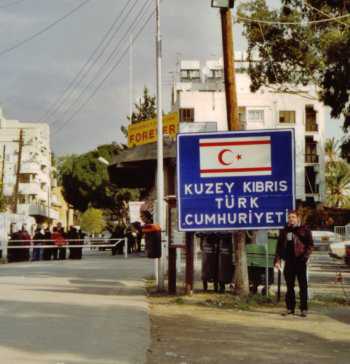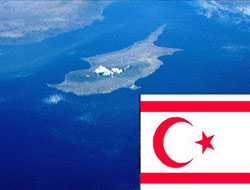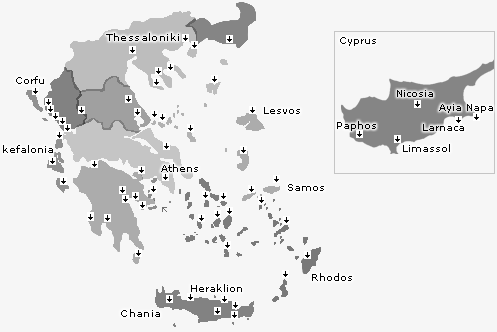Turkey considering search for oil, gas in waters off Cyprus’ northern coast
The Associated Press
By MENELAOS HADJICOSTIS ASSOCIATED PRESS WRITER
NICOSIA, Cyprus October 21, 2010 (AP)

Turkey is considering starting oil and gas exploration off the northern coast of Cyprus, a senior Turkish Energy Ministry official said Thursday.
The official said initial seismic research conducted in waters between Turkey’s southern Mediterranean port city of Mersin and Cyprus, 200 kilometers (124 miles) away, “has yielded certain data.”
He said Turkey is carrying out further studies on how to proceed with exploration and is looking into possible partnerships with international gas and oil giants.
The official spoke on condition of anonymity in line with Turkish rules that bar state officials from speaking to reporters without prior authorization.
The news came as Lebanese Prime Minister Saad Hariri said his country is finalizing its sea boundaries with Syria to facilitate a search for offshore mineral deposits.
“Now we have a much better relationship with Syria and we are negotiating the economic zone,” Hariri told reporters after talks Thursday with Cyprus President Dimitris Christofias in Nicosia.
Lebanon signed an agreement with Cyprus to mark out sea boundaries in 2007, but ratification by Lebanese legislators has stalled. Hariri referred to “differences” between the two countries, but didn’t elaborate.
Hariri said the agreements with both Cyprus and Syria will be sent to parliament for ratification, “hopefully soon”.
Cyprus signed a similar agreement with Egypt in 2003.
Oil and gas exploration has threatened to increase tensions between rivals Cyprus and Turkey.
Cyprus was divided in 1974 when Turkey invaded after a coup on Cyprus by people who favored uniting the island with Greece. The island has an internationally recognized Greek Cypriot south and a breakaway Turkish Cypriot north, where Turkey keeps 35,000 troops.
Cyprus joined the European Union in 2004, but only Greek Cypriots — who represent the island in the bloc — enjoy the benefits.



 US-BASED Jewish lobby groups have denied any role in helping to pass a congressional resolution censuring Turkey over its role in obliterating Greek Cypriot cultural presence in the north of Cyprus, the Jewish Telegraphic Agency (JTA) has reported.
US-BASED Jewish lobby groups have denied any role in helping to pass a congressional resolution censuring Turkey over its role in obliterating Greek Cypriot cultural presence in the north of Cyprus, the Jewish Telegraphic Agency (JTA) has reported.
 Report on Future Strategies for Turkish Republic of Northern Cyprus prepared by Turkish Economy Bank was submitted to TRNC executives on Monday.
Report on Future Strategies for Turkish Republic of Northern Cyprus prepared by Turkish Economy Bank was submitted to TRNC executives on Monday.